Dogs
Safe Pet Diets: Avoid Toxic Foods for Dogs
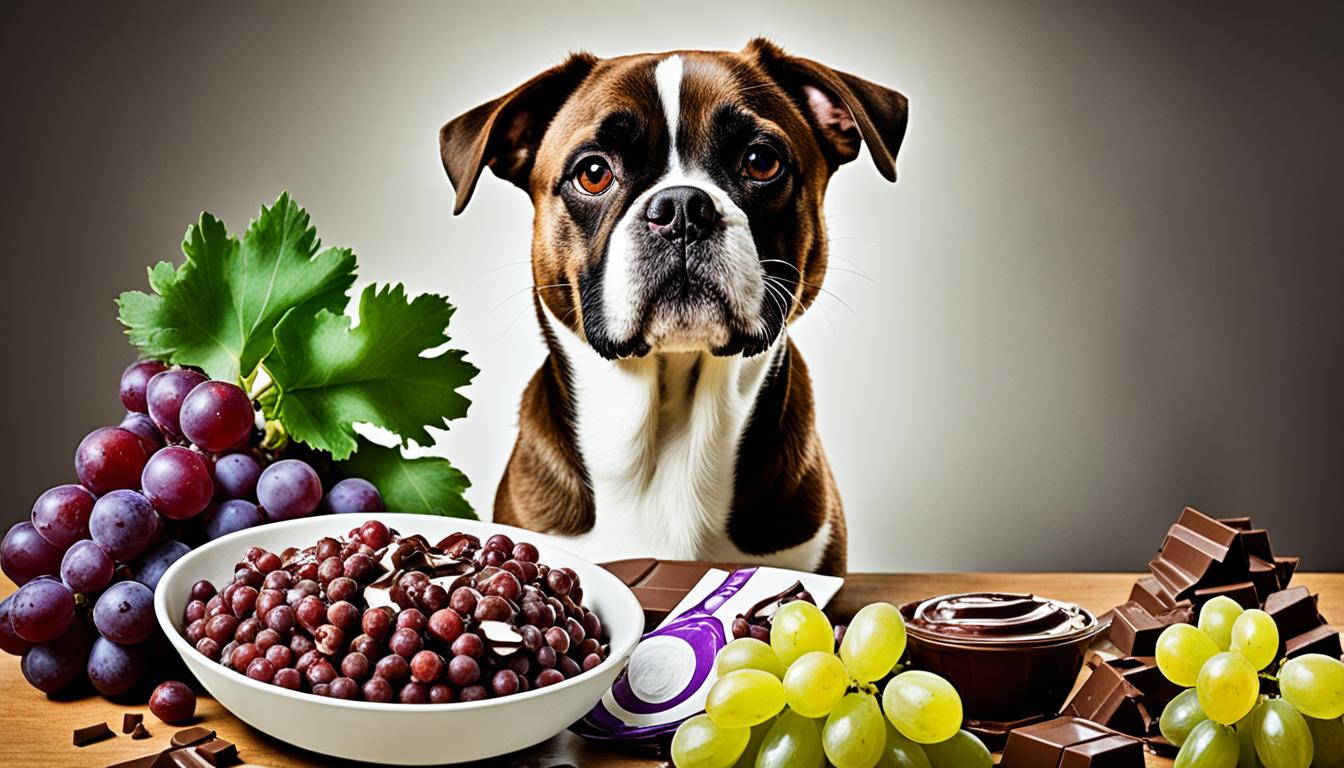
When it comes to ensuring the well-being of our beloved pets, providing them with proper nutrition is crucial. As responsible pet parents, we recognize the significance of offering our dogs a well-rounded diet. Nevertheless, there are specific foods that can pose a danger or toxicity to our canine friends.
Knowing which foods to avoid can help prevent potential health risks and keep our pets safe. In this article, we will explore some common foods that should not be included in your dog’s diet. By being aware of these toxic foods, you can ensure that your pet stays healthy and happy.
Key Takeaways:
- Alcohol, avocado, chocolate, citrus, coconut and coconut oil, grapes and raisins, macadamia nuts, milk and dairy, onions, garlic, chives, raw/undercooked meat, eggs, and bones, salt, xylitol, and yeast dough are all toxic foods for dogs.
- Ingesting alcohol can cause serious health complications in dogs, including vomiting, diarrhea, and even death.
- Avocado can be harmful to dogs, particularly birds and rabbits, and may cause cardiovascular damage.
- Chocolate, coffee, and caffeine-containing products can be toxic to dogs and may lead to symptoms such as vomiting, hyperactivity, and tremors.
- Citrus plants, including the fruit, stems, leaves, peels, and seeds, can cause irritation and central nervous system depression in dogs if ingested in large amounts.
Alcohol
Alcohol is extremely dangerous for dogs and should never be given to them. It can cause various symptoms of alcohol ingestion in dogs such as vomiting, diarrhea, decreased coordination, central nervous system depression, difficulty breathing, tremors, abnormal blood acidity, coma, and even death. If you suspect your dog has ingested alcohol, it is important to contact your veterinarian or the ASPCA Animal Poison Control Center immediately.
The Dangers of Alcohol Ingestion in Dogs
“Alcohol is toxic to dogs and can have severe consequences if ingested.”
Ingesting alcohol can have serious consequences for dogs. The sequel follows manifesting as symptoms of alcohol poisoning in dogs. When dogs consume alcohol, it affects their central nervous system and can cause various adverse effects. These effects can range from mild to life-threatening, depending on the amount of alcohol ingested and the size of the dog.
Symptoms of Alcohol Ingestion in Dogs
The symptoms of alcohol ingestion in dogs can include:
- Vomiting
- Diarrhea
- Decreased coordination
- Central nervous system depression
- Difficulty breathing
- Tremors
- Abnormal blood acidity
- Coma
- Death
The severity of the symptoms will depend on the amount of alcohol ingested. It is essential to seek immediate veterinary care if you suspect your dog has ingested alcohol.
| Alcohol Ingestion Level | Possible Symptoms |
|---|---|
| Low to Moderate | Vomiting, diarrhea, decreased coordination |
| Moderate to High | Central nervous system depression, difficulty breathing, tremors |
| High to Extreme | Abnormal blood acidity, coma, death |
Avocado
Avocado can be harmful to dogs, especially for birds, rabbits, donkeys, horses, and ruminants. The biggest concern with avocado is cardiovascular damage and even death in birds and rabbits. Horses, donkeys, and ruminants can develop swollen, edematous head and neck. It’s best to avoid feeding avocados to your dog.
| Avocado Toxicity in Dogs | Symptoms of Avocado Ingestion in Dogs |
|---|---|
| Avocado can cause cardiovascular damage and even death in birds and rabbits | Vomiting |
| Swollen, edematous head and neck in horses, donkeys, and ruminants | Diarrhea |
| Difficulty breathing | |
| Tremors | |
| Abnormal blood acidity |
Chocolate, Coffee, and Caffeine
When it comes to dogs, certain human foods can be toxic, and chocolate, coffee, and caffeine products are high on the list. These innocent treats for us can cause serious harm to our furry friends. The culprit behind the toxicity is a group of substances known as methylxanthines. Let’s take a closer look at the potential dangers and symptoms of ingestion in dogs.
Upon consumption, chocolate, coffee, and caffeine can result in a range of symptoms in dogs, including:
- Vomiting
- Diarrhea
- Panting
- Excessive thirst and urination
- Hyperactivity
- Abnormal heart rhythm
- Tremors
- Seizures
- Death (in severe cases)
The severity of the symptoms depends on the type and amount of chocolate or caffeine ingested. Dark chocolate poses the greatest risk, as it contains higher levels of methylxanthines compared to milk chocolate. Baking chocolate, in particular, has the highest concentration of these substances and is extremely hazardous. It’s essential to keep all products containing chocolate and caffeine away from your curious canine.
If you suspect that your dog has ingested chocolate, coffee, or caffeine, contact your veterinarian or the ASPCA Animal Poison Control Center immediately for guidance.
| Type of Chocolate | Methylxanthine Content (per ounce) |
|---|---|
| Milk Chocolate | 1-15 mg |
| Semi-Sweet/Dark Chocolate | 5-35 mg |
| Unsweetened Baking Chocolate | 130-165 mg |

Preventing Chocolate Ingestion in Dogs
As a responsible dog owner, it’s crucial to take measures to prevent your dog from accessing chocolate, coffee, and caffeine products. Keep these items stored securely, out of your pet’s reach. Educate your family and visitors about the dangers of sharing these treats with your furry companion. Opt for dog-friendly alternatives when you want to reward your pup or share a special treat.
Remember, early intervention is key to preventing serious health issues related to chocolate, coffee, and caffeine ingestion in dogs. Stay vigilant and ensure your beloved pet stays safe.
Citrus
Citrus plants, including the stems, leaves, peels, fruit, and seeds, contain citric acid and essential oils that can cause irritation and central nervous system depression if ingested in significant amounts. Small doses, such as eating the fruit, are unlikely to cause problems beyond minor stomach upset.
| Symptoms of Citrus Ingestion in Dogs |
|---|
|
While citrus fruits may seem harmless, it’s essential to be cautious when exposing your dog to citrus. If you suspect your dog has ingested citrus or is showing any symptoms of citrus ingestion, it’s best to contact your veterinarian for further guidance.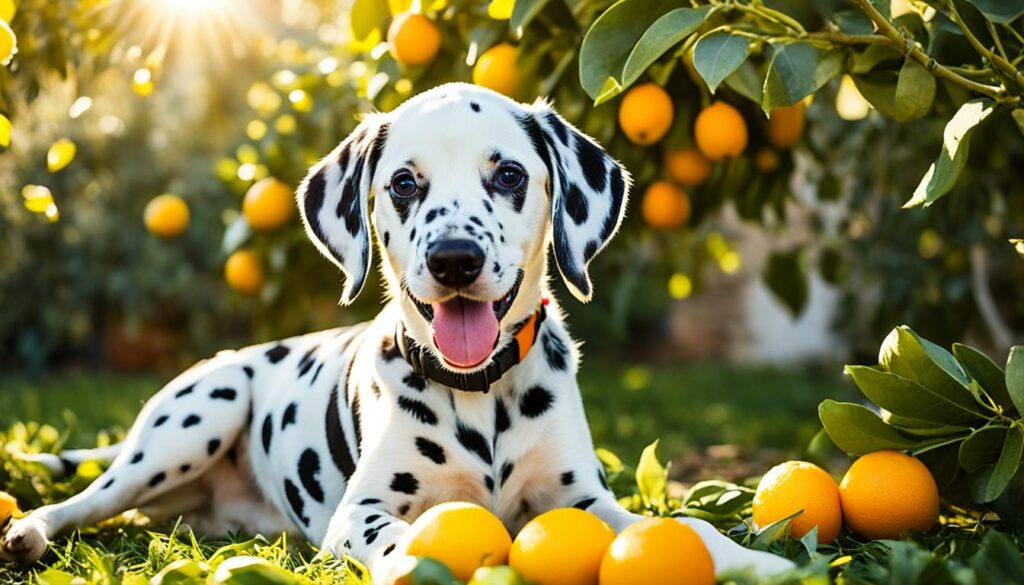
Coconut and Coconut Oil
When it comes to coconut and coconut oil, small amounts are generally safe for dogs. However, it’s important to exercise caution as the oils in coconuts can sometimes cause stomach upset, loose stools, or diarrhea in dogs. While some dogs may tolerate coconut and coconut oil well, others may experience digestive issues.
If you choose to offer coconut or coconut-based products to your dog, it’s recommended to introduce them gradually and in small quantities to see how your dog responds. This will help you determine if your furry friend can handle coconut without any adverse effects.
Additionally, it’s worth mentioning that coconut water is not suitable for dogs. While it may be a popular beverage for humans, coconut water contains a high amount of potassium. Excessive potassium intake can disrupt the electrolyte balance in dogs, leading to potential health problems.
Overall, coconut and coconut oil can be a part of your dog’s diet in moderation. However, it’s essential to monitor your dog’s response and consult with your veterinarian if you have any concerns or notice any unusual symptoms.
Take a look at the image below to see a cute dog enjoying a coconut treat:
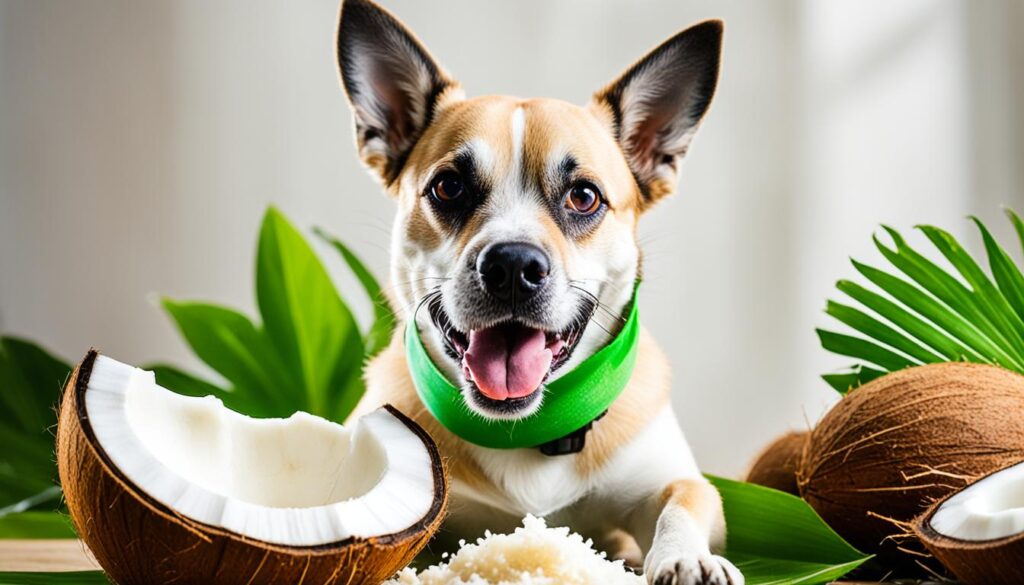
Grapes and Raisins
The toxic substance in grapes and raisins is unknown, but these fruits can cause kidney failure in dogs. It’s best to avoid feeding grapes and raisins to your dog, as even small amounts can be harmful.
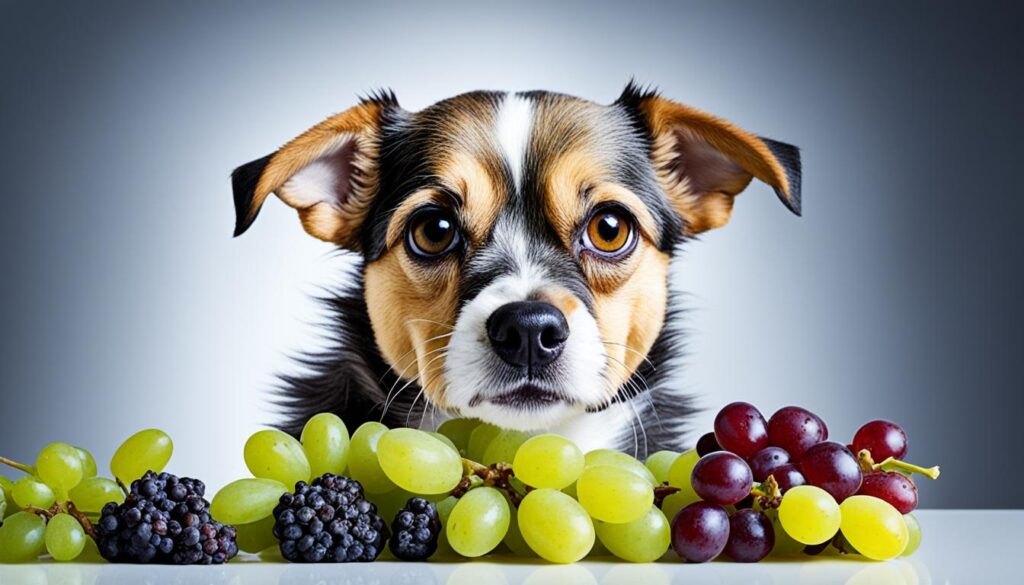
Symptoms of Grape/Raisin Ingestion in Dogs
When a dog ingests grapes or raisins, it can exhibit various symptoms that indicate potential toxicity. These symptoms may include:
- Vomiting
- Diarrhea
- Loss of appetite
- Abdominal pain
- Weakness
- Excessive thirst
- Increased urination
- Decreased urine production
- Dehydration
If you notice any of these symptoms and suspect that your dog has ingested grapes or raisins, it is important to seek veterinary care immediately. Prompt treatment can help prevent further complications and minimize the risk of kidney failure.
Although not all dogs show immediate signs of illness after consuming grapes or raisins, it is essential to remember that the toxic effects can be severe even in small quantities. Therefore, it’s crucial to keep grapes and raisins out of your dog’s reach and ensure they are not included in your dog’s diet.
Milk and Dairy
Dogs do not possess significant amounts of lactase, the enzyme that breaks down lactose in milk. Feeding milk and other dairy-based products to dogs can cause diarrhea or other digestive upset. It’s best to avoid feeding your dog milk and dairy.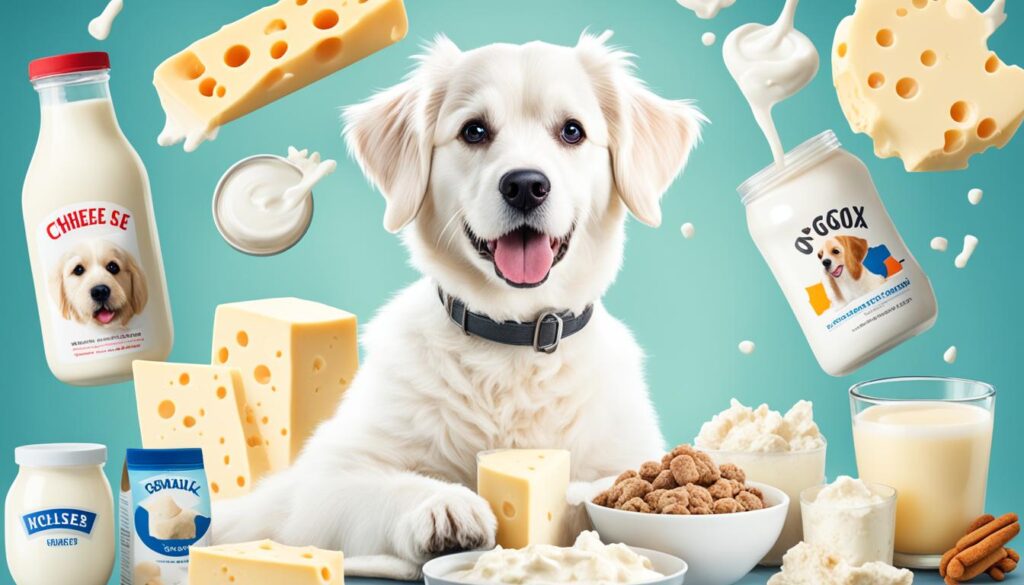
If you’ve ever wondered whether you can share your dairy products with your furry friend, the answer is no. While many humans enjoy milk, cheese, and other dairy treats, dogs are not designed to digest these foods properly. This is due to their lack of lactase, the enzyme responsible for breaking down lactose, the natural sugar found in milk.
Feeding milk and dairy to dogs can lead to unpleasant symptoms such as diarrhea, upset stomach, gas, and bloating. These symptoms occur because the lactose in dairy products cannot be properly digested without lactase, resulting in an inability to break it down into absorbable sugars.
Lactose intolerance in dogs is more common than you might think. Many dogs are unable to tolerate lactose, and even small amounts can cause discomfort and digestive issues.
If you want to give your dog a treat that resembles milk, it’s best to opt for a lactose-free, specifically formulated dog milk substitute. These products are designed to provide the taste and nutritional benefits of milk without the lactose that can upset your dog’s stomach.
Remember, dogs have different nutritional requirements than humans, and it’s essential to provide them with a diet that meets their specific needs. While milk and dairy can be enjoyed by humans, they should be avoided when it comes to your furry companion’s diet.
Nuts
Nuts, such as almonds, pecans, and walnuts, are popular snacks for humans. However, it’s important to note that these tasty treats can be harmful to dogs. Nuts contain high amounts of oils and fats that can cause gastrointestinal issues in dogs, including vomiting and diarrhea. Additionally, nuts can potentially lead to pancreatitis, a serious condition that causes inflammation of the pancreas.
If your dog accidentally ingests nuts or shows symptoms of nut ingestion, it’s essential to seek veterinary advice immediately. Common symptoms of nut ingestion in dogs may include:
- Vomiting – Dogs may have episodes of throwing up after consuming nuts.
- Diarrhea – Loose or watery stools may occur as a result of nut consumption.
- Abdominal discomfort – Dogs may exhibit signs of stomach pain or discomfort.

Nut Allergies in Dogs
Just like humans, dogs can also have allergies, including nut allergies. Nut allergies in dogs are relatively rare, but they do occur. Symptoms of nut allergies may range from mild to severe and can include:
- Itching and skin irritation – Dogs with nut allergies may scratch excessively or develop rashes.
- Swelling – Some dogs may experience facial swelling, particularly around the muzzle and eyes.
- Difficulty breathing – In severe cases, dogs with nut allergies may have difficulty breathing due to throat swelling.
If you suspect that your dog has a nut allergy or has ingested nuts and is experiencing symptoms, it’s crucial to consult with your veterinarian for proper diagnosis and treatment.
Tips for Prevention
The best way to protect your dog from the potential risks associated with nuts is to avoid feeding them nuts altogether. Keep all nuts, such as almonds, pecans, and walnuts, out of your dog’s reach, and be cautious when consuming nuts yourself to prevent accidental ingestion by your dog.
| Nuts to Avoid for Dogs | Risks |
|---|---|
| Almonds | Potential gastrointestinal issues and pancreatitis |
| Pecans | Potential gastrointestinal issues and pancreatitis |
| Walnuts | Potential gastrointestinal issues and pancreatitis |
By being aware of the potential dangers and taking necessary precautions, you can help keep your furry friend safe and healthy.
Onions, Garlic, Chives
Onions, garlic, and chives may add flavor to our meals, but these ingredients can be harmful to our furry friends. While cats are more susceptible to their toxic effects, dogs are also at risk if they consume a large enough amount. It’s essential to avoid feeding these foods to your dog to prevent gastrointestinal irritation, red blood cell damage, and anemia.
Symptoms of Onion/Garlic Ingestion in Dogs
When a dog ingests onions, garlic, or chives, they may display the following symptoms:
- Weakness or fatigue
- Loss of appetite
- Vomiting
- Diarrhea
- Pale gums
- Increased heart rate
- Difficulty breathing
If you notice any of these symptoms after your dog has eaten any of these ingredients, it’s essential to seek veterinary attention immediately. The veterinarian will be able to provide appropriate treatment and support to help your dog recover.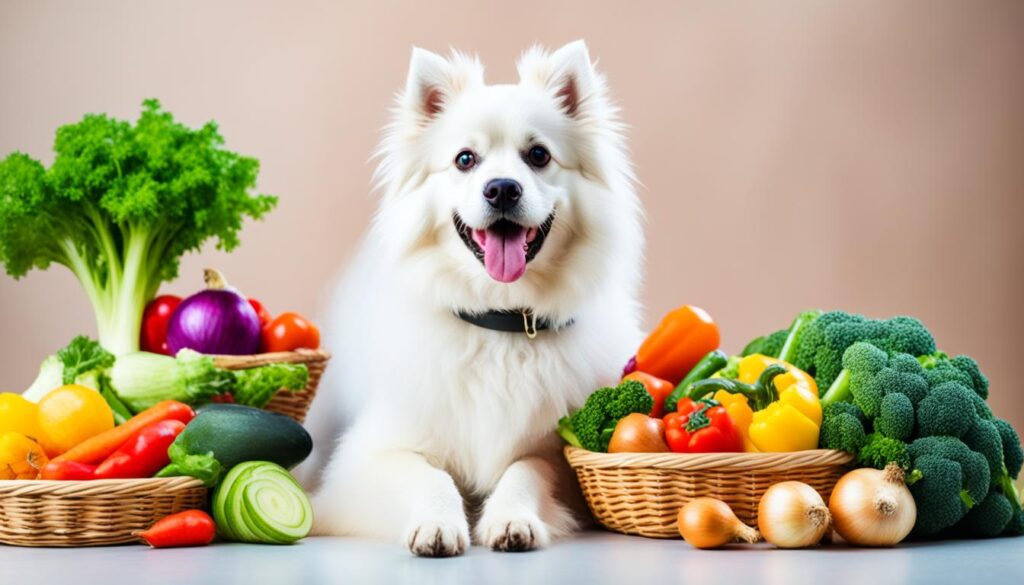
It’s important to note that the toxic compounds found in onions, garlic, and chives can also be present in other forms, such as powders or extracts. Therefore, be cautious when using any food products that contain these ingredients, as even small amounts can be harmful to your dog.
Did You Know? Onions, garlic, and chives belong to the Allium family, which also includes leeks and shallots. Allium plants contain compounds that can cause damage to red blood cells and lead to anemia in dogs and cats.
To ensure the safety and well-being of your furry companion, it’s best to keep these ingredients out of reach and avoid using them in any dog treats, homemade meals, or table scraps.
Remember, prevention is key when it comes to protecting our dogs from harmful foods. By being aware of the potential dangers and making informed decisions about what we feed them, we can keep our canine companions safe and healthy.
Conclusion
In order to ensure the safety and well-being of your beloved pet, it is vital to be aware of the toxic foods that can harm dogs. By avoiding these harmful substances, you can maintain a safe pet diet and prevent potential health issues. Remember to keep alcohol, avocado, chocolate, citrus, coconut, grapes and raisins, macadamia nuts, milk and dairy, onions, garlic, chives, raw or undercooked meat, eggs and bones, salt, xylitol, yeast dough, and other harmful foods out of your dog’s reach.
If you suspect that your dog has ingested any toxic foods, do not hesitate to reach out to your veterinarian or the ASPCA Animal Poison Control Center for immediate assistance. They can provide guidance and necessary treatment to ensure your pet’s well-being.
Always prioritize the health and safety of your furry friend by being vigilant about what they consume. A safe pet diet is key to their overall well-being, so remember to avoid any harmful foods for dogs. Your furry companion will thank you for it!FAQ
What are some toxic foods that should be avoided when feeding my dog?
Why is alcohol dangerous for dogs?
Can dogs eat avocados?
What are the dangers of chocolate, coffee, and caffeine for dogs?
Can dogs eat citrus fruits?
Is coconut safe for dogs?
Why should grapes and raisins be avoided when feeding dogs?
Can dogs consume milk and dairy products?
Are nuts harmful to dogs?
Why should onions, garlic, and chives be avoided when feeding dogs?
What should I do if I suspect my dog has ingested a toxic food?
As our Editor-in-Chief, James plays a pivotal role in ensuring the quality and integrity of our content. With a keen eye for detail and a passion for storytelling, James oversees the editorial process here at A Place for Animals. With years of experience in content editing, James ensures that every piece of content meets our high standards of accuracy and clarity. Under James’ guidance, you can rest assured that the content you read is informative and impeccably crafted.
Dogs
The Origins of Ebons Name
Nurture your curiosity about the enigmatic origins and powerful connotations of the name 'Ebon.

The name 'Ebon' originates in Old English, tied to ebony wood in the 15th century. It transformed to represent intense blackness by the 1590s. Latin influences give it power, elegance, and mystery, creating a name of grandeur and timelessness. In various cultures, 'Ebon' signifies strength, mystery, elegance, power, and authority. Variants like Ebony and Ebenezer hold biblical meaning. The name also connotes resilience, intelligence, history, and tradition, appealing universally with enduring qualities. The historical significance of 'Ebon' includes references to ebony wood and intense blackness, symbolizing resilience, determination, and mystery. More insights await on this fascinating name's journey.
Key Takeaways
- 'Ebon' originated from Old English in early 15th century.
- Initially tied to the adjective form of ebony.
- Evolved to symbolize intense blackness by 1590s.
- Latin and Greek roots imbue 'Ebon' with power and elegance.
- Historical reference to skin color of Africans by 1813.
The Old English Origins of 'Ebon'
The term 'Ebon' reveals its roots in Old English, tracing back to the early 15th century. Originally associated with the adjective form of ebony, a dark and hard wood highly valued for its various uses, 'Ebon' has evolved to symbolize intense blackness, a concept noted as early as the 1590s.
In the context of last names, 'Ebon' has historical ties to the color black, reflecting the rich tapestry of its linguistic journey. The adoption of 'Ebon' as a last name signifies a connection to heritage and a nod to the deep and profound shades of black that have inspired awe and admiration for centuries.
As we explore the origins of 'Ebon,' we expose a narrative that intertwines linguistic evolution with cultural connotations, offering a glimpse into the intricate web of meanings encapsulated by this ancient term.
The Latin Influence on 'Ebon'

With its roots deeply intertwined in Latin and Greek languages, 'Ebon' exudes a timeless allure that echoes notions of strength, elegance, and mystery. The Latin influence on 'Ebon' is profound, reflecting its association with power and authority. The name's Latin origins highlight its classic appeal and deep historical significance, adding a layer of sophistication to its meaning. Below is a table showcasing the Latin influence on 'Ebon':
| Latin Influence | Meaning | Symbolism |
|---|---|---|
| Potestas | Power | Authority |
| Elegans | Elegance | Sophistication |
| Mysterium | Mystery | Intrigue |
| Fortitudo | Strength | Resilience |
| Auctoritas | Authority | Leadership |
The Latin roots of 'Ebon' infuse the name with a sense of grandeur and timelessness, making it a compelling choice rich in cultural significance.
The Meaning of 'Ebon' in Different Cultures
Exploring the significance of 'Ebon' across various cultures reveals its multifaceted meanings and associations beyond its Latin roots. In Latin and Greek cultures, the name 'Ebon' carries the powerful connotations of 'black' or 'dark,' symbolizing strength and mystery. This name is deeply intertwined with resilience and intelligence, embodying a profound connection to history and tradition.
Across different cultures, 'Ebon' is synonymous with elegance, power, and authority, drawing from its ancient Roman and Greek origins. Its timeless and classic appeal speaks to sophistication and depth, making it a name of enduring quality. Variants such as Ebony, Eben, and Ebenezer also bear historical and biblical significance, offering unique twists on the name 'Ebon.'
These names hold a rich tapestry of meanings that transcend borders, showcasing the universal allure of 'Ebon' and its variations in the world of names.
Historical Significance of the Name 'Ebon'

Delving into the historical significance of the name 'Ebon' uncovers a rich tapestry of connections to materials, cultures, and symbolism.
- Baby Name Associations:
The name 'Ebon' originated in the early 15th century and is linked to ebony, a dark, hard wood favored for various uses. Its figurative use for intense blackness dates back to the 1620s, with an adjective form emerging in the 1590s.
- Material Connotations:
The term 'Ebonite,' coined in 1860, combines 'ebon' and '-ite' to signify a related material or substance, emphasizing its historical ties to strength and durability.
- Cultural References:
By 1813, 'Ebon' had a historical reference to the skin color of Africans, reflecting its association with darkness and intensity while also symbolizing elegance and mystery rooted in ancient Roman and Greek cultures.
- Symbolism of Resilience:
The name 'Ebon' signifies resilience and determination, echoing themes of strength and mystery in various historical contexts, making it a meaningful choice for parents seeking a name with depth and significance.
Evolution of the 'Ebon' Surname
The surname 'Ebon' underwent a transformation over the centuries, reflecting its deep-rooted connection to the symbolism of dark, hard wood. Originating in the early 15th century, 'Ebon' derived from the word 'ebony,' signifying the characteristics of this material. By the 1620s, it had evolved to convey intense blackness, capturing the essence of ebony. The term 'Ebonite,' introduced in 1860, further expanded on this association, referring to a related material or substance akin to ebony.
Through the years, 'Ebon' became intertwined with concepts of skin color and holds a historical tie to African heritage. This evolution mirrors the shifting societal perceptions and associations with darkness and blackness. The popularity of names often reflects these underlying cultural currents, showcasing how 'Ebon' has adapted and resonated with different generations.
Frequently Asked Questions
What Is the Meaning of Ebons?
Ebons means 'black' or 'dark', embodying strength, elegance, and mystery. It reflects resilience and determination from ancient Roman and Greek roots. Intelligence, intuition, and a timeless appeal are qualities associated with it.
What Does Ebon Name Mean?
We love the name Ebon. It means 'black' or 'dark', representing strength, elegance, and mystery. A timeless choice that exudes power and authority. Ebon's rarity and modern edge make it a unique and compelling name.
What Is the Origin of the Word Ebon?
We found the word "ebon" originates from Latin and Greek roots, symbolizing strength, elegance, mystery, power, and authority. It evolved to describe intense blackness. The term was used for various items and associated with African skin color.
What Does "Ebon" Mean in Greek?
In Greek, 'Ebon' means 'dark' or 'black,' embodying qualities of strength, elegance, and mystery. Its association with intensity and depth adds a timeless appeal. The name symbolizes power, authority, and sophistication.
Conclusion
To sum up, the origins of the name 'Ebon' are as mysterious and complex as the darkness it represents. From Old English roots to Latin influences, the name has evolved over time to carry different meanings in various cultures.
Its historical significance and evolution as a surname add layers to its intriguing story. So next time you come across someone named Ebon, remember the rich history behind this enigmatic name. It's more than just a label, it's a window into the past.
As our Editor-in-Chief, James plays a pivotal role in ensuring the quality and integrity of our content. With a keen eye for detail and a passion for storytelling, James oversees the editorial process here at A Place for Animals. With years of experience in content editing, James ensures that every piece of content meets our high standards of accuracy and clarity. Under James’ guidance, you can rest assured that the content you read is informative and impeccably crafted.
Dogs
7 Angry Cat Names That Exude Fierceness
Tap into your cat's wild side with these fierce names that scream power and strength – find out which one will suit your feline warrior best!

When selecting a name for your fierce feline, opt for lion-inspired monikers like Leo, Roar, or King for regal power. Warrior-themed names such as Ninja, Gladiator, and Samurai bring out strength and prowess. Mythical options like Gandalf or Legolas add a touch of mystique. Nature-inspired picks like Thunder or Avalanche evoke raw force. Villainous choices such as Maleficent or Loki exude a dark charm. Explore these fierce and strong cat names to find the perfect fit for your fiery feline. Further reveal your cat's ferocity with these intriguing name options.
Key Takeaways
- Opt for names like Shadow, Vortex, or Venom for a fierce vibe.
- Choose names such as Diablo, Banshee, or Nemesis for a dark and powerful aura.
- Consider names like Havoc, Chaos, or Fury to showcase intense energy.
- Select names such as Ghost, Wraith, or Phantom for a mysterious and menacing feel.
- Pick names like Eclipse, Inferno, or Ravage for a strong and aggressive presence.
Lion-Inspired Cat Names
When selecting names for feline companions, considering lion-inspired monikers can accentuate their regal and commanding presence. Badass cat names like Leo, Roar, and Mane evoke the strength and dominance associated with lions. These names can bring out the fierce and fearless nature of your cat, adding a touch of royalty and dominance to their personality.
Names such as King and Pride can symbolize leadership and confidence in your feline friend. Embracing these lion-inspired monikers not only showcases your cat's majestic aura but also highlights their inner power and independence.
Warrior-Themed Cat Names
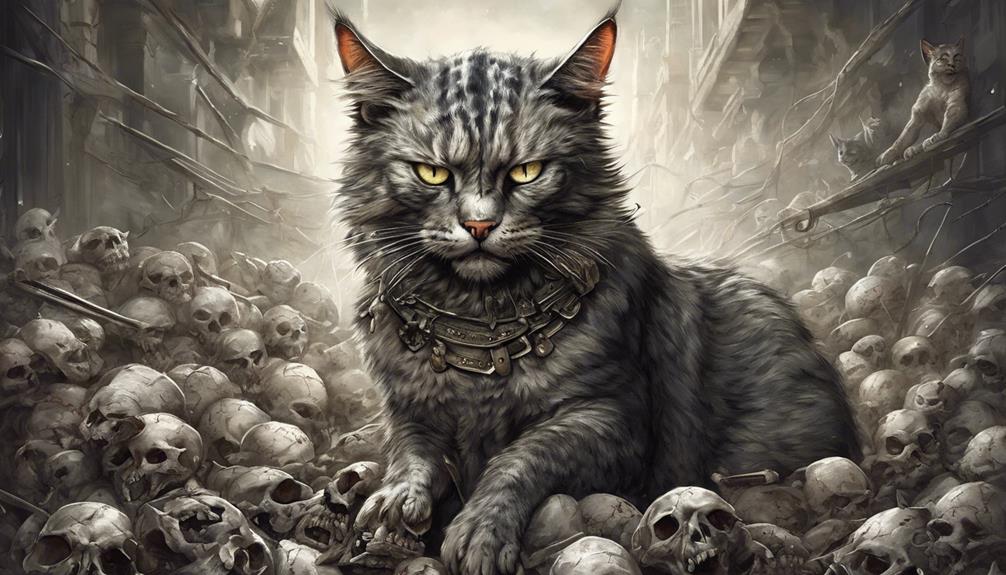
When selecting a name for your female cat that mirrors her bold and brave personality, consider options like Valkyrie, Ninja, Gladiator, Samurai, or Warrior. These names not only convey a feeling of power and valor but also capture your cat's fearless demeanor and adventurous spirit.
Opt for a name that resonates with your cat's unique characteristics and showcases her inner warrior. Female cats with warrior-themed names are often viewed as independent, daring, and full of determination.
Mythical Cat Names
Mythical cat names bring an air of mystique and power to your feline companion's persona, adding a touch of enchantment to their identity. When considering names inspired by legends and mythology, one popular source of inspiration is the epic fantasy world of Lord of the Rings. Names like Gandalf, Arwen, Legolas, or even Smaug can bestow upon your cat a sense of grandeur and otherworldly charm.
Drawing from the rich tapestry of mythical creatures and characters in Lord of the Rings, you can choose a name that reflects qualities such as strength, beauty, or wisdom. Whether your cat embodies the grace of an elf or the cunning of a dragon, these names offer a unique opportunity to celebrate your cat's majestic and mysterious nature.
Nature-Inspired Cat Names

Let's explore nature-inspired cat names that capture the essence of the wild and fierce. Nature-inspired names such as Thunder, Blaze, Avalanche, Tempest, and Tsunami can make great choices for your fierce feline companion. These names draw inspiration from powerful forces of nature, reflecting a cat's untamed and strong nature.
Cats bearing these names often exude a sense of strength and fierceness, embodying the characteristics of natural phenomena. Opting for a nature-inspired name can add a unique and impactful touch to your cat's persona and demeanor. Popular choices for fierce cats include Wildfire, Chaos, Beast, Fury, and Havoc.
Each of these names carries a sense of power and intensity, perfect for a cat with a fiery spirit. When selecting a nature-inspired name for your cat, consider the traits and qualities that resonate with you and your cat's personality, ultimately creating a name that truly embodies their wild and fierce nature.
Villainous Cat Names
Villainous cat names are perfect for felines with a dark and mysterious aura. These monikers draw inspiration from famous villains in popular culture, adding intrigue and power to your cat's persona.
Whether your cat is a sweetie with a dark side or a true troublemaker, a villainous name can make them stand out and showcase their unique personality.
Sinister Cat Monikers
What makes sinister cat monikers like Maleficent, Loki, Ursula, Jafar, and Cruella so intriguing and mysterious? Choosing a villainous name for your cat can be the perfect way to showcase their fierce and formidable side.
These names, inspired by infamous fictional villains, add a touch of darkness and intrigue to your feline friend's persona. Opting for a sinister cat moniker can reflect your cat's mischievous or cunning nature, giving them an air of power and mystique.
Names like Maleficent or Loki are perfect for cats with rebellious or enigmatic personalities, adding a sense of mystery and danger. Embracing a villainous cat name can be a fun and creative way to highlight your cat's darker, more mysterious side.
Wicked Feline Titles
Exploring the realm of sinister feline designations reveals a fascinating array of malevolent cat names that exude a sense of darkness and allure. Names inspired by notorious villains like Maleficent, Loki, Ursula, Jafar, and Cruella add a touch of mystery and mischief to your cat's persona.
These wicked feline titles draw from movies, fairy tales, and myths, infusing your cat with a rebellious and cunning nature. Ideal for cats with a mischievous aura, these names bring drama and intrigue to their character.
Embracing a villainous cat name from a TV show can be a fun way to highlight your cat's fierce and independent spirit, giving them a unique and edgy identity in the feline world.
Dark and Mysterious Cat Names

When searching for a fitting name that embodies an air of mystery and allure for your feline companion, consider dark and mysterious cat names like Shadow, Phantom, and Midnight. These names evoke a sense of intrigue and mystique that can perfectly match a cat with a mysterious or enigmatic personality. By choosing a dark and mysterious name, you can add a touch of sophistication and allure to your cat's persona, reflecting its unique and enigmatic nature.
| Dark and Mysterious Cat Names | |
|---|---|
| Shadow | Phantom |
| Midnight | Mystique |
| Raven | Eclipse |
| Noir | Luna |
| Salem | Twilight |
These names not only sound intriguing but also carry a certain depth that can make your cat stand out. So, if you're looking to give your feline friend a name that exudes a sense of mystery and allure, consider these dark and mysterious options.
Fierce and Strong Cat Names
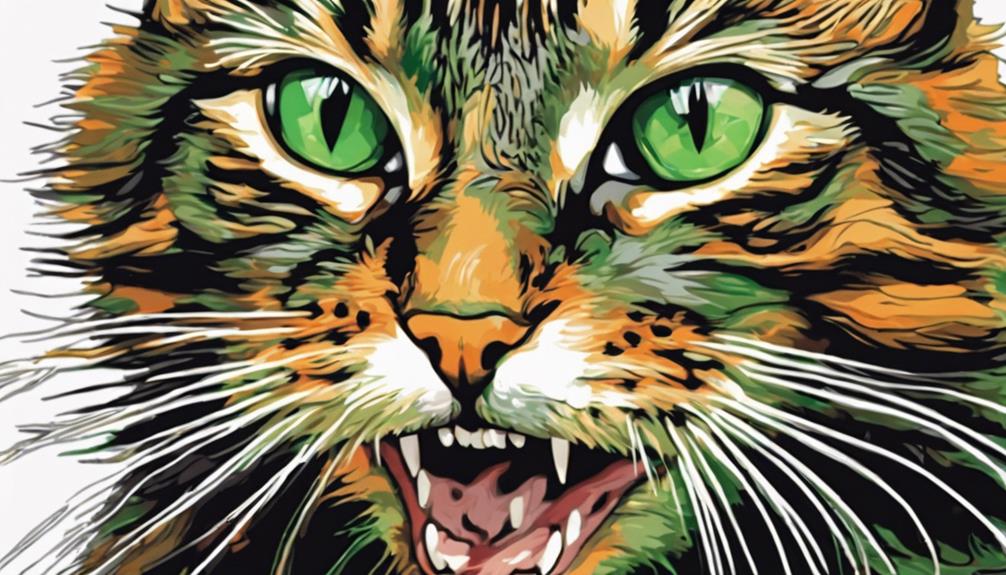
Exemplifying power and resilience, fierce and strong cat names serve as ideal monikers for felines with commanding personalities. These names, such as Thor, Athena, Hercules, Valkyrie, and Titan, exude strength and fearlessness, drawing inspiration from mythology, warriors, and powerful figures. When choosing a fierce and strong name for your cat, you not only showcase their inner strength but also highlight their fiery spirit.
These names are perfect for cats who command attention and possess a bold demeanor, reflecting a sense of power and resilience. By giving your cat a name that embodies strength and fierceness, you're acknowledging their unique personality and emphasizing their fearless nature.
Whether your cat struts around the house like a mighty warrior or exudes a quiet strength, a fierce and strong name can be a fitting tribute to their commanding presence. So, consider these powerful monikers when looking for a name that truly captures your cat's indomitable spirit.
Frequently Asked Questions
What Are Some Badass Names for Cats?
We've got some fierce cat names loaded with attitude and strength. Think legendary figures like Cleopatra, Spartacus, and Capone for a badass touch. These names pack a punch for cats with serious personality!
What Was Angry Cats Name?
We loved Grumpy Cat, also known as Tardar Sauce, an internet sensation due to her perpetually grumpy face. Despite her angry look, she brought joy worldwide. Her feline dwarfism and underbite made her unique.
What Cat Names Mean Strong?
We love names like Leo, Valkyrie, and Titan for strong cats. These names evoke power and resilience, perfect for our fierce feline friends. They inspire confidence and reflect our cats' determined and bold personalities.
What Are Some Fighter Cat Names?
We love fighter cat names for their bold and powerful vibes. Names like Warrior, Valkyrie, Ninja, Gladiator, and Samurai. They reflect bravery, courage, and tenacity. These names add an extra layer of badassery to our feline friends.
Conclusion
To sum up, choosing a fierce and angry cat name can be a fun way to showcase your pet's personality. Whether you opt for a lion-inspired name like 'Simba' or a villainous name like 'Maleficent,' the options are endless.
For example, my friend named her feisty feline 'Thor' after the mighty Norse god of thunder, and it suits his fiery temperament perfectly. Remember to choose a name that not only reflects your cat's fierceness but also brings a smile to your face every time you say it.
As our Editor-in-Chief, James plays a pivotal role in ensuring the quality and integrity of our content. With a keen eye for detail and a passion for storytelling, James oversees the editorial process here at A Place for Animals. With years of experience in content editing, James ensures that every piece of content meets our high standards of accuracy and clarity. Under James’ guidance, you can rest assured that the content you read is informative and impeccably crafted.
Dogs
Is Dieffenbachia Toxic to Dogs?

Dieffenbachia is toxic to dogs because it has calcium oxalate crystals, causing severe mouth irritation and painful sores. Symptoms include drooling, vomiting, and difficulty swallowing. Immediate vet help is necessary. Treatment may involve flushing the mouth and providing pain relief. To avoid exposure, keep plants out of reach and train dogs not to chew on them. Deterrent sprays can help. Be cautious on walks to prevent outdoor ingestion. Educate yourself and others about Dieffenbachia's danger to pets for their safety. Learn more about symptoms, diagnosis, treatment, and prevention measures.
Key Takeaways
- Dieffenbachia is toxic to dogs due to insoluble calcium oxalate crystals.
- Ingestion causes severe oral irritation, leading to painful ulcerations.
- Symptoms include drooling, vomiting, and difficulty swallowing.
- Immediate veterinary attention is crucial if ingestion occurs.
- Prevent exposure by keeping plants out of reach and educating on toxicity.
Potential Dangers of Dieffenbachia for Dogs
We must be aware of the potential dangers Dieffenbachia poses to dogs due to the presence of insoluble calcium oxalate crystals that can cause severe oral irritation. These crystals, if chewed on, can lead to painful ulcerations in a dog's mouth, tongue, and lips.
This oral irritation can be quite distressing for our furry friends and may result in symptoms like excessive drooling, vomiting, and difficulty swallowing. It's vital to understand that Dieffenbachia is toxic to dogs, and any ingestion of this plant should prompt immediate veterinary attention.
Our pet's health is paramount, and seeking professional help promptly can prevent further complications. Veterinarians may provide treatment such as pain medication and gastroprotectant medication to help alleviate the discomfort caused by Dieffenbachia ingestion.
Symptoms of Dieffenbachia Toxicity in Dogs
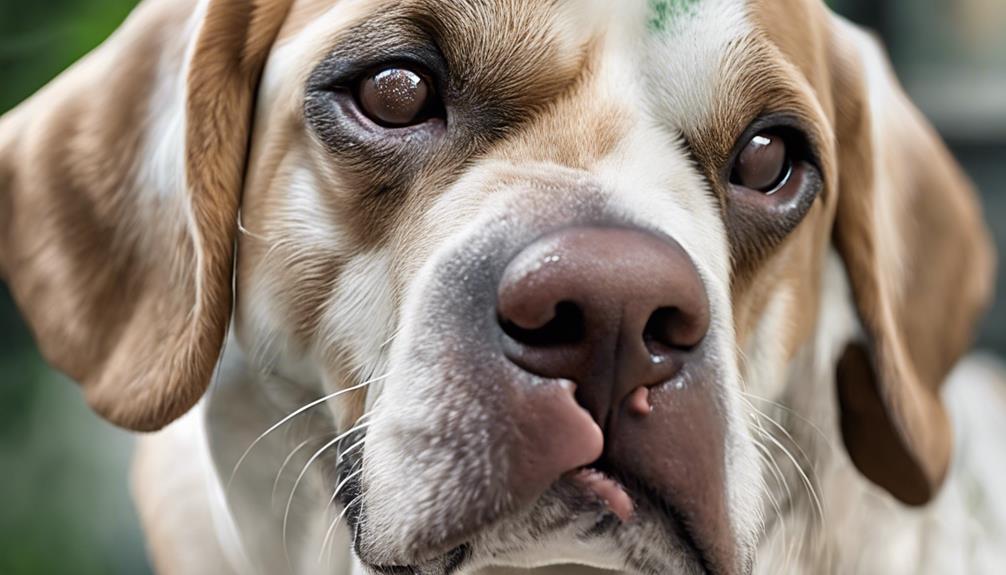
After ingesting Dieffenbachia, dogs may exhibit symptoms of toxicity such as intense burning and irritation in the mouth, tongue, and lips, along with excessive drooling and difficulty swallowing. These signs can be distressing for your furry friend, causing discomfort and potential health risks.
If your dog starts lip-smacking, avoiding food and water, or pawing at their mouth after encountering Dieffenbachia, it's essential to act promptly. In more severe cases, Dieffenbachia toxicity in dogs can progress to respiratory swelling, vomiting, and even allergic reactions.
Immediate veterinary attention is highly recommended if you suspect your dog has been poisoned by Dieffenbachia to prevent further complications. Your veterinarian may provide treatment such as pain medication and gastroprotectants to alleviate the symptoms and aid in your dog's recovery.
Diagnosis of Dieffenbachia Poisoning in Dogs

Diagnosing Dieffenbachia poisoning in dogs typically involves identifying common symptoms such as oral irritation, excessive drooling, vomiting, and difficulty swallowing. If your dog has ingested any part of the Dieffenbachia plant and is displaying these signs, it's essential to seek veterinary attention immediately.
Your vet may perform an oral examination to check for any plant residues in your dog's mouth or throat. Blood tests could also be conducted to detect any abnormalities associated with Dieffenbachia Poisoning, such as insoluble calcium oxalate crystals.
In some cases, imaging tests like X-rays or ultrasounds may be utilized to evaluate the extent of damage caused by the plant ingestion. Providing your vet with a sample of the plant your dog consumed can aid in an accurate diagnosis.
Treatment Options for Dieffenbachia Toxicity
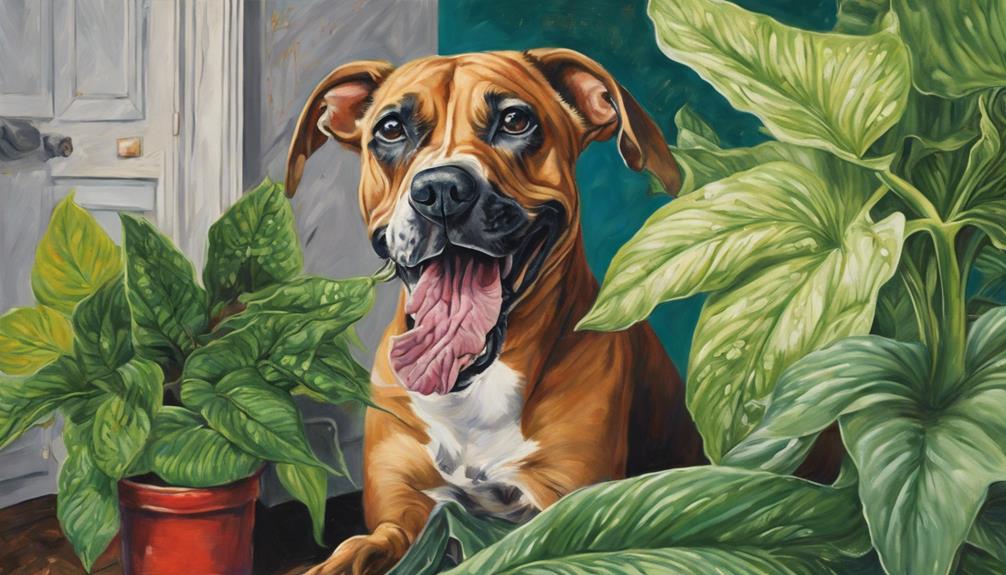
Upon identifying Dieffenbachia poisoning in dogs, the immediate focus shifts to implementing effective treatment options to address the toxicity. Here are some vital steps to take into account:
- Flush the Mouth: Flushing the mouth to remove any remaining pieces of the Dieffenbachia plant is essential to prevent further absorption of calcium oxalate crystals.
- Pain Management: Administering painkillers and protecting the gastrointestinal system can help alleviate discomfort and aid in the recovery process.
- Eye Examination: If the dog's eyes have been exposed to the plant, immediate treatment with saline solution is necessary to prevent additional damage.
- Skin Irritation: Managing skin irritation from contact with the Giant Dumb Cane plant involves washing the affected area with warm, soapy water and using prescription cream if needed.
- Seek Veterinary Care: Immediate veterinary care is crucial for proper diagnosis and treatment of Dieffenbachia toxicity in dogs. Veterinarians can provide specialized care and monitor the dog's progress closely.
Preventing Dieffenbachia Exposure in Dogs

To prevent Dieffenbachia exposure in dogs, it's important to place these plants out of their reach to avoid ingestion. This plant contains insoluble oxalate crystals that can be toxic to dogs and cats if ingested.
Training dogs to avoid chewing on houseplants, including Dieffenbachia, is vital for their safety. Additionally, consider using deterrent sprays or barriers to further safeguard your pets from accessing Dieffenbachia.
When taking your dog for walks, be vigilant and prevent them from ingesting any parts of the plant they may encounter outdoors. Educating family members and visitors about the toxicity of Dieffenbachia is essential to guarantee overall pet safety.
Frequently Asked Questions
What Happens if a Dog Eats a Dieffenbachia?
If a dog eats Dieffenbachia, it can lead to severe oral irritation due to toxic calcium oxalate crystals. Symptoms include excessive drooling, vomiting, and trouble swallowing. Chewing on Dieffenbachia releases these harmful crystals, causing painful mouth ulcers in dogs.
Immediate vet care is essential to prevent complications. Treatment may involve pain and gastroprotectant meds. Keep your pooch away from this plant to avoid these risks.
What Is the Most Poisonous Plant for Dogs?
The most poisonous plant for dogs is the Dieffenbachia. Ingesting this plant can lead to severe symptoms like oral irritation and difficulty swallowing. If a dog consumes Dieffenbachia, prompt veterinary care is essential to prevent potential fatalities.
Treatment may involve flushing the mouth, pain management, and safeguarding the gastrointestinal system. Proper diagnosis through blood tests and imaging is vital in cases of Dieffenbachia poisoning in dogs.
Are Pothos Toxic to Dogs?
Pothos plants are toxic to dogs, causing mouth and tongue irritation if ingested. Symptoms of Pothos toxicity include vomiting and increased salivation.
It's important to keep Pothos away from pets to prevent poisoning incidents.
Are Ivy Plants Poisonous to Dogs?
Ivy plants can be toxic to dogs, causing rash, breathing issues, coma, or paralysis. Despite their innocent appearance, they pose serious health risks.
It's crucial to keep them out of reach to protect our furry friends. Awareness and prevention are key to safeguarding dogs against these toxic effects.
Conclusion
To sum up, it's vital to keep dieffenbachia plants out of reach of your furry friends to prevent potential toxicity. Remember, even though dieffenbachia may look appealing, it can be harmful to dogs if ingested.
By being mindful of the symptoms and taking precautions, you can guarantee the safety and well-being of your beloved pets. So, why take the risk when you can easily avoid it by being proactive and cautious?
Dana is our Lead Content Writer, bringing a wealth of knowledge and expertise to our team. With a background deeply rooted in animal studies and a profound love for all creatures, Dana is dedicated to crafting engaging and informative content that resonates with our audience. With Dana at the helm, you can trust that our content is accurate and engaging, catering to the diverse interests of animal enthusiasts everywhere.
-
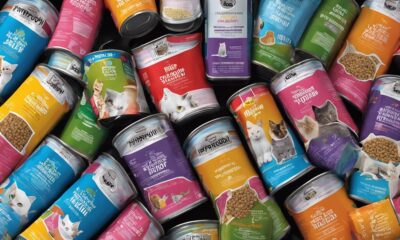
 Vetted2 months ago
Vetted2 months ago15 Best Cat Foods for Managing Hyperthyroidism – Vet Approved and Feline Friendly
-
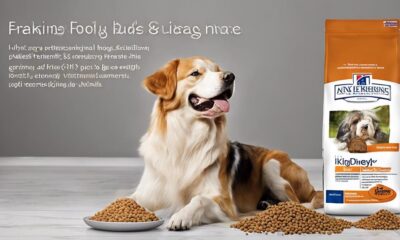
 Vetted2 months ago
Vetted2 months ago15 Best Dog Foods for Kidney Disease – Expert Recommendations for Your Pet's Health
-

 Vetted2 months ago
Vetted2 months ago15 Best Wet Cat Foods for Older Cats to Keep Them Healthy and Happy
-

 Vetted2 months ago
Vetted2 months ago14 Best Homemade Dog Food Recipes Your Pup Will Love – Vet Approved & Nutritious
-

 Vetted2 months ago
Vetted2 months ago15 Best Fresh Dog Food Delivery Services for Your Pup's Health and Happiness
-

 Animal Facts2 months ago
Animal Facts2 months agoSpring Animals: A Guide to Seasonal Wildlife
-

 Cats1 month ago
Cats1 month agoCat Weight Chart by Age: Kitten to Senior in Lbs
-

 Cats2 weeks ago
Cats2 weeks agoTop 5 Cat Breeders in Arkansas: A Guide





















